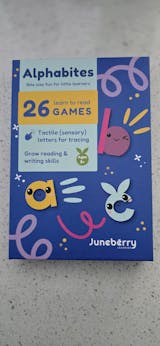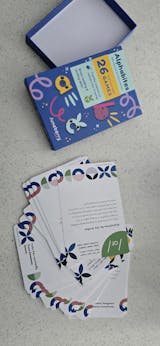Unlock your child's reading potential in just 5 minutes a day
Children learn best when they practice reading skills at home. Alphabites makes this easy: 5 minutes a day of playful learning for kids ages 2 to 6. Perfect for busy families on the go.

You are your childs best teacher
Reading Myths
Learning to read comes naturally
Learning to speak happens naturally as children listen to other people talk. Written language is a special code that connects the sounds of language to squiggles on the page. There are many of these codes, so to read a language, you have to learn its code.
You need a degree to teach reading
Anyone can teach their child to read. You just need to know about phonemic awareness, how letter shapes connect to letter sounds, and how to help your child use this knowledge to learn to read. We can help you with this!
We don't have time for reading
Reading and playing with your child at home reinforces the knowledge and skills they need to succeed. With just 5 minutes a day of playful games you can support your child and build a strong foundation for reading.

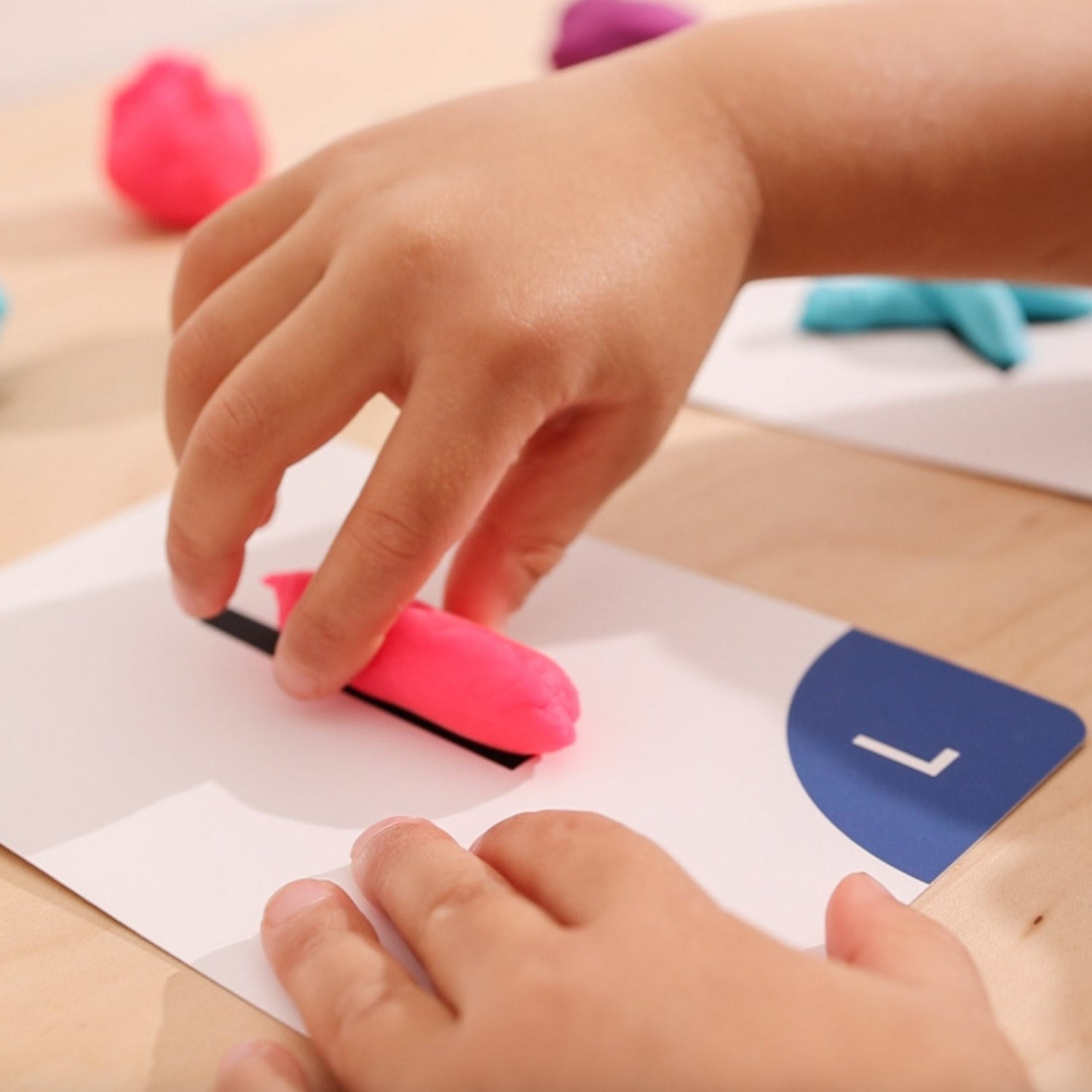
Children learn best through purposeful play
- Engaging and interactive games
- Choose a learning pace that fits your child
- Build confidence to move quickly to reading and writing
- Research backed, teacher developed: based on the science of reading and writing

26 Multisensory Games

Juneberry Learning
Alphabites Game Pack
Build strong readers through playful learning. Alphabites includes over 26 multisensory games with 39 letter-sound cards and a quick start + bonus video guide.
FREE standard shipping in Canada and the United States
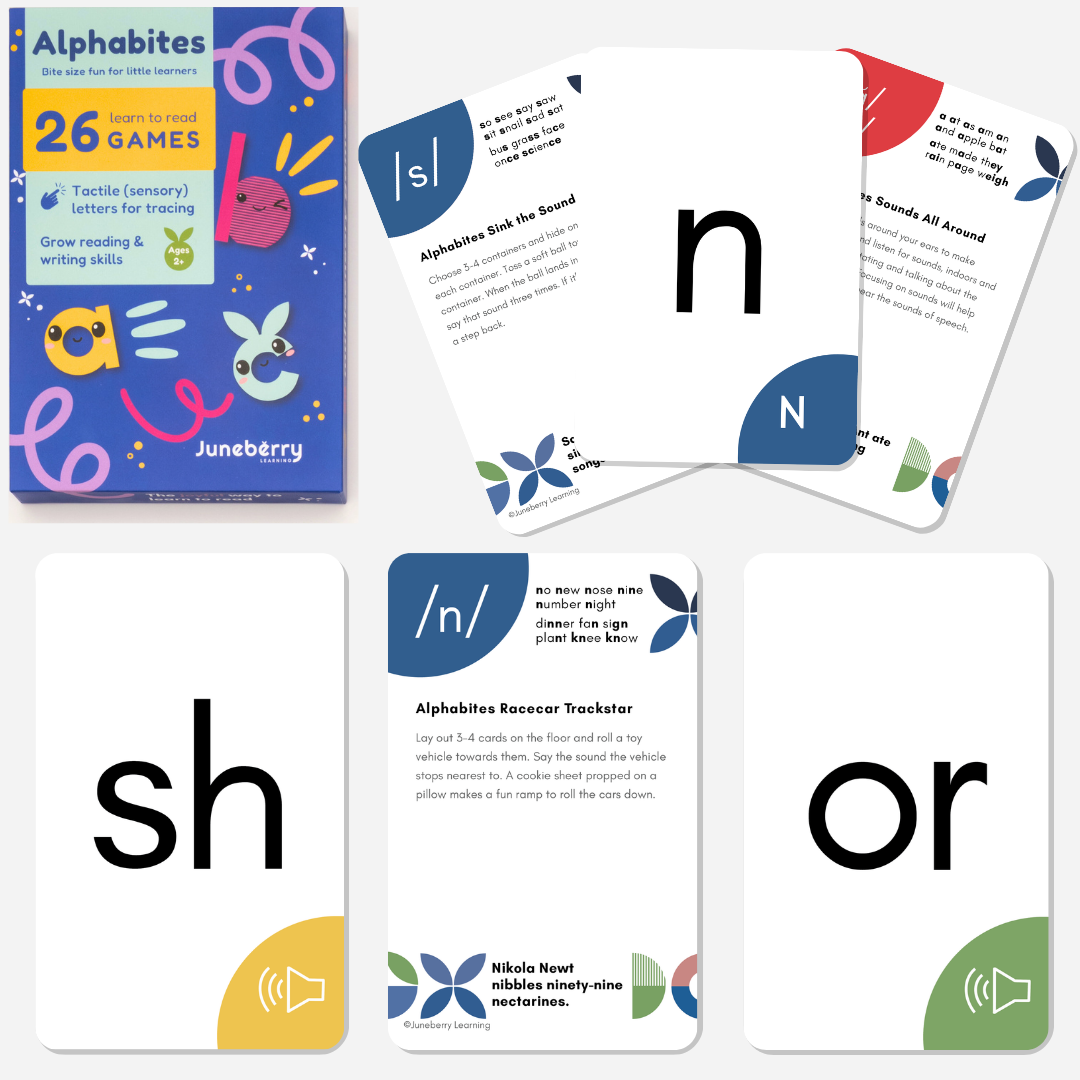
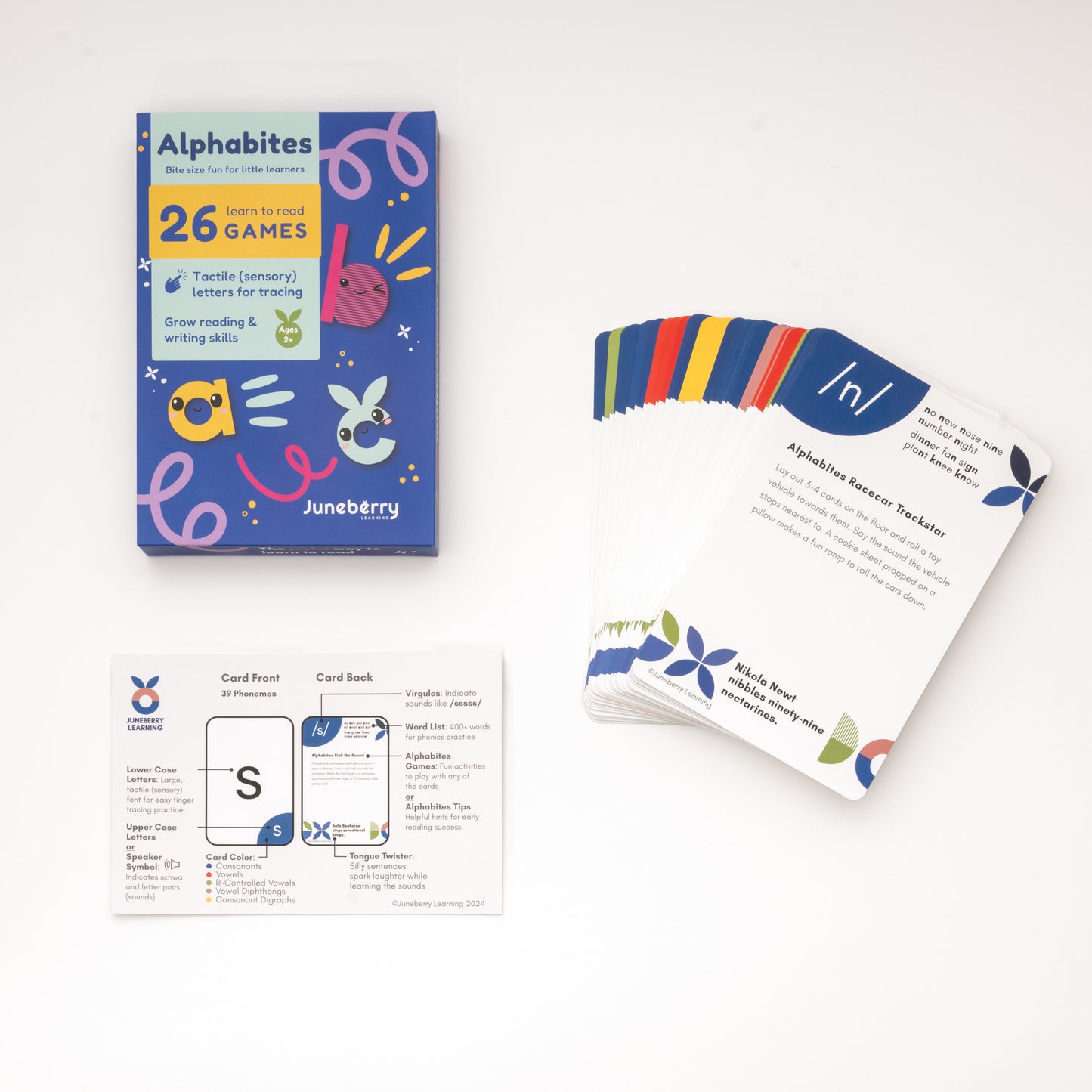
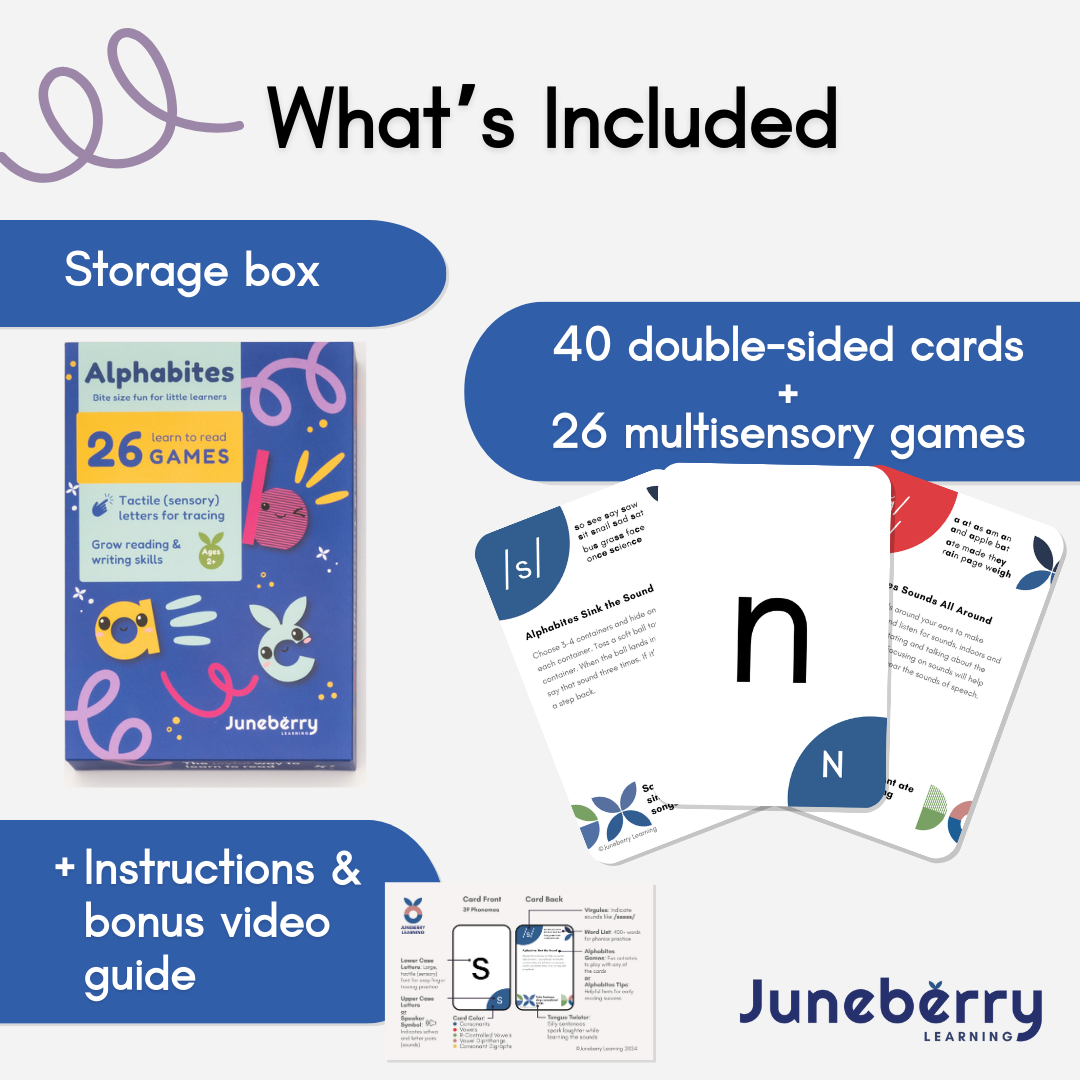
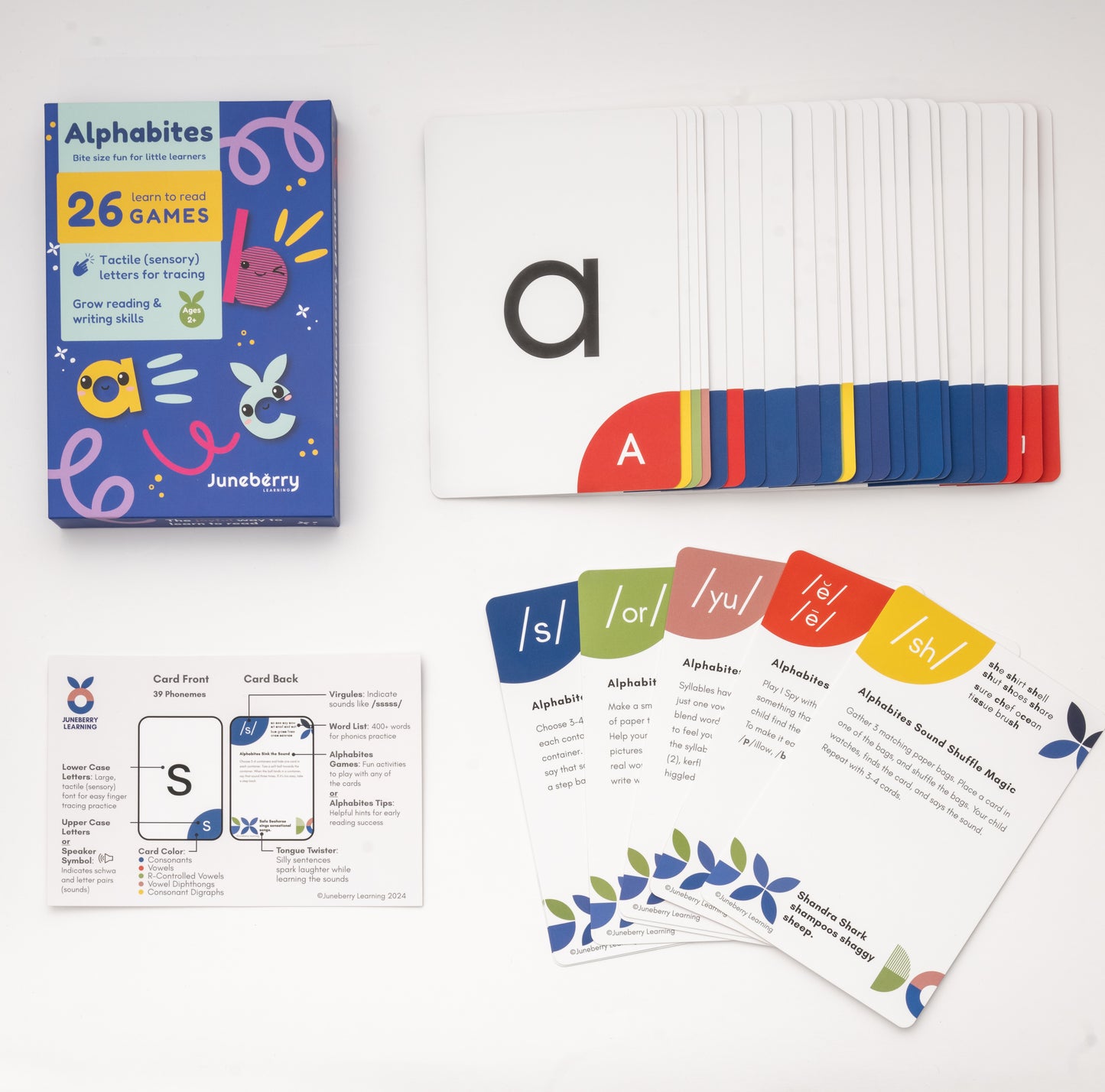
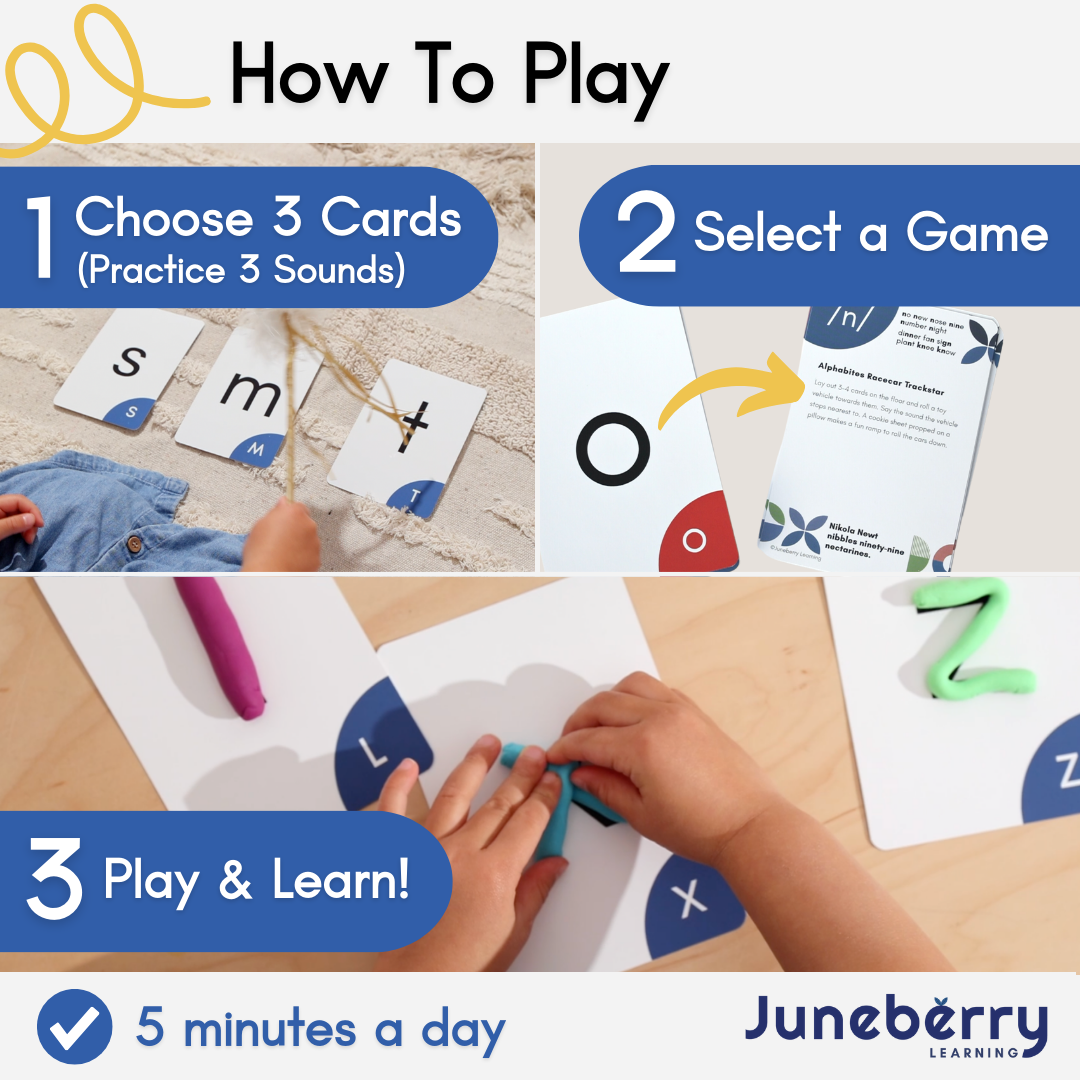
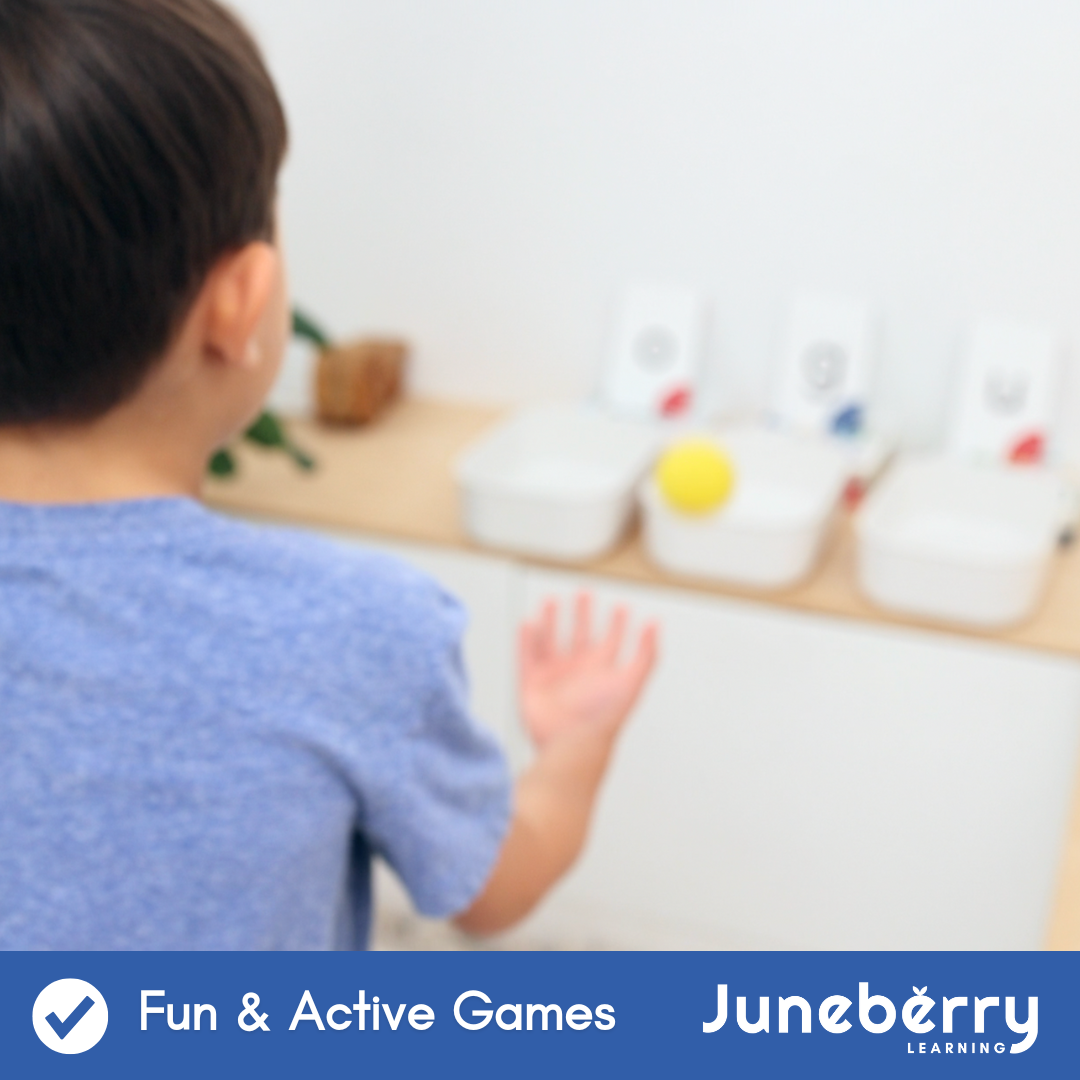
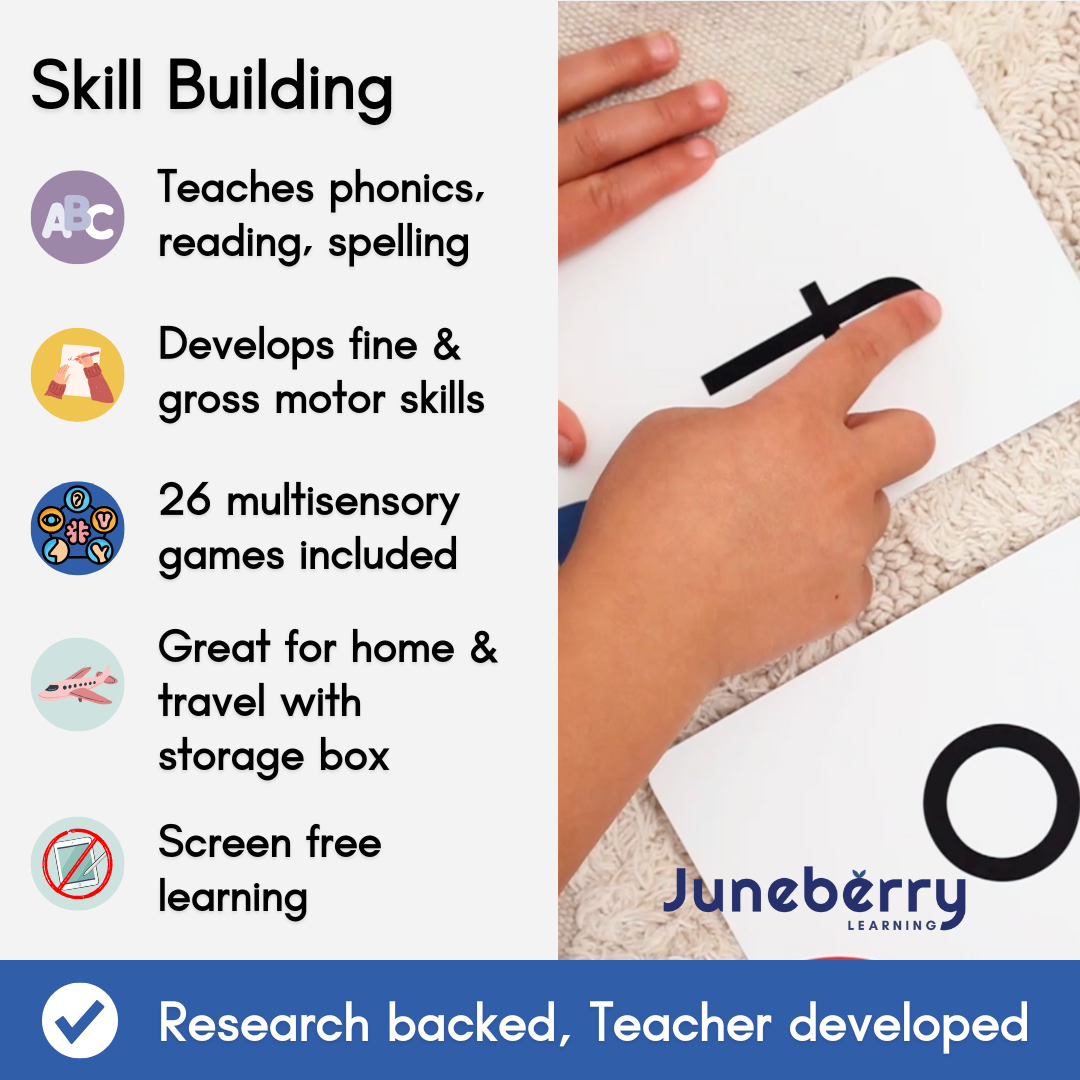
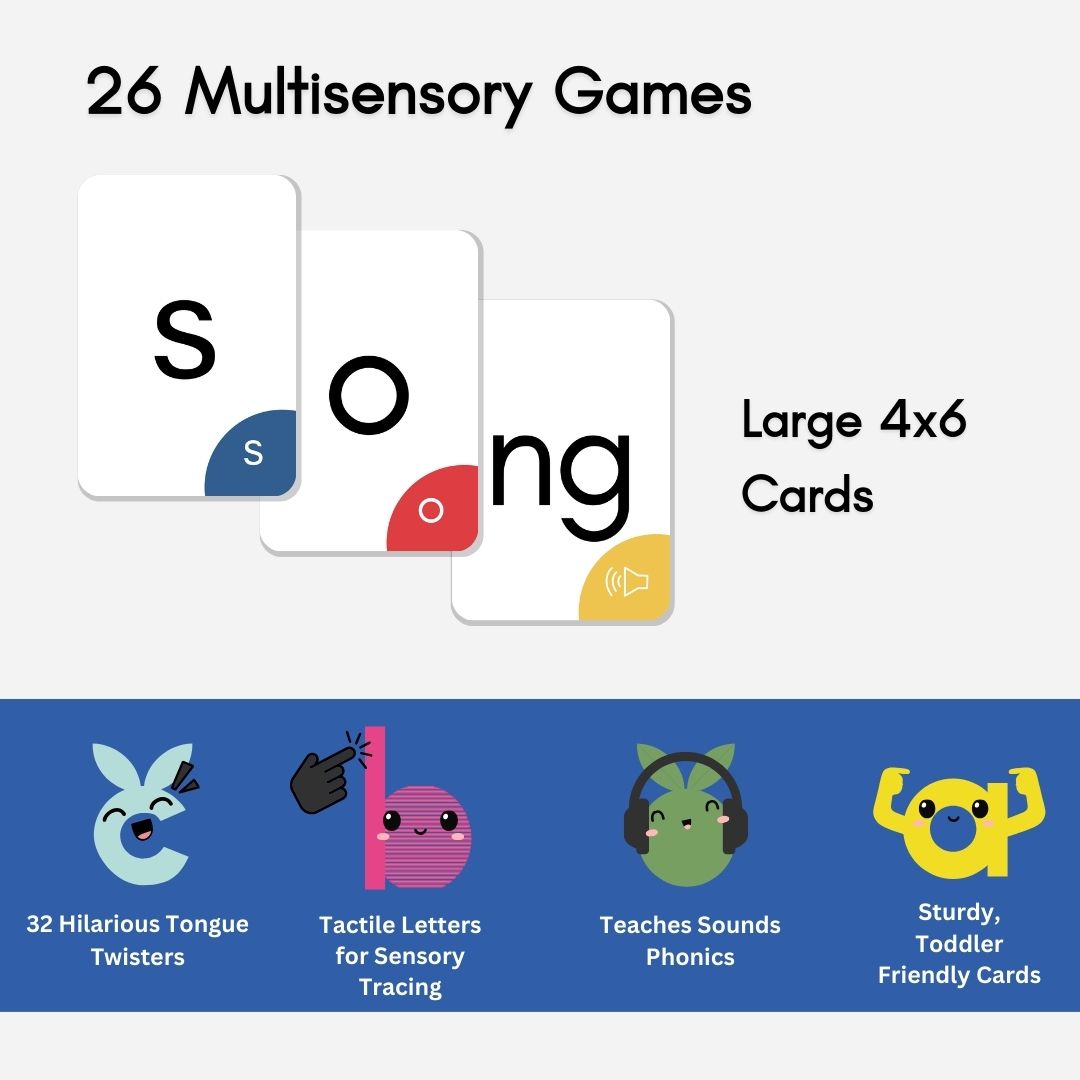
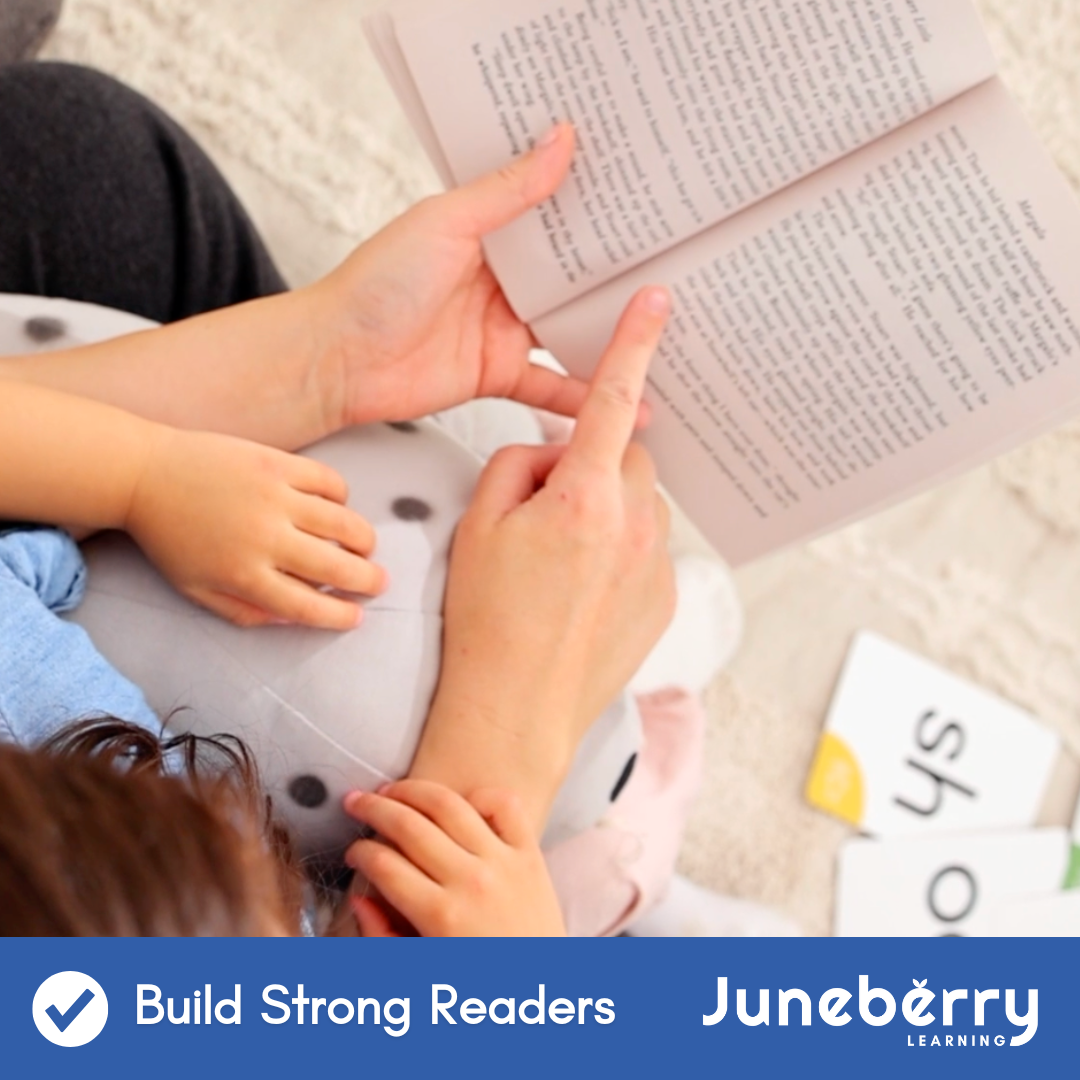
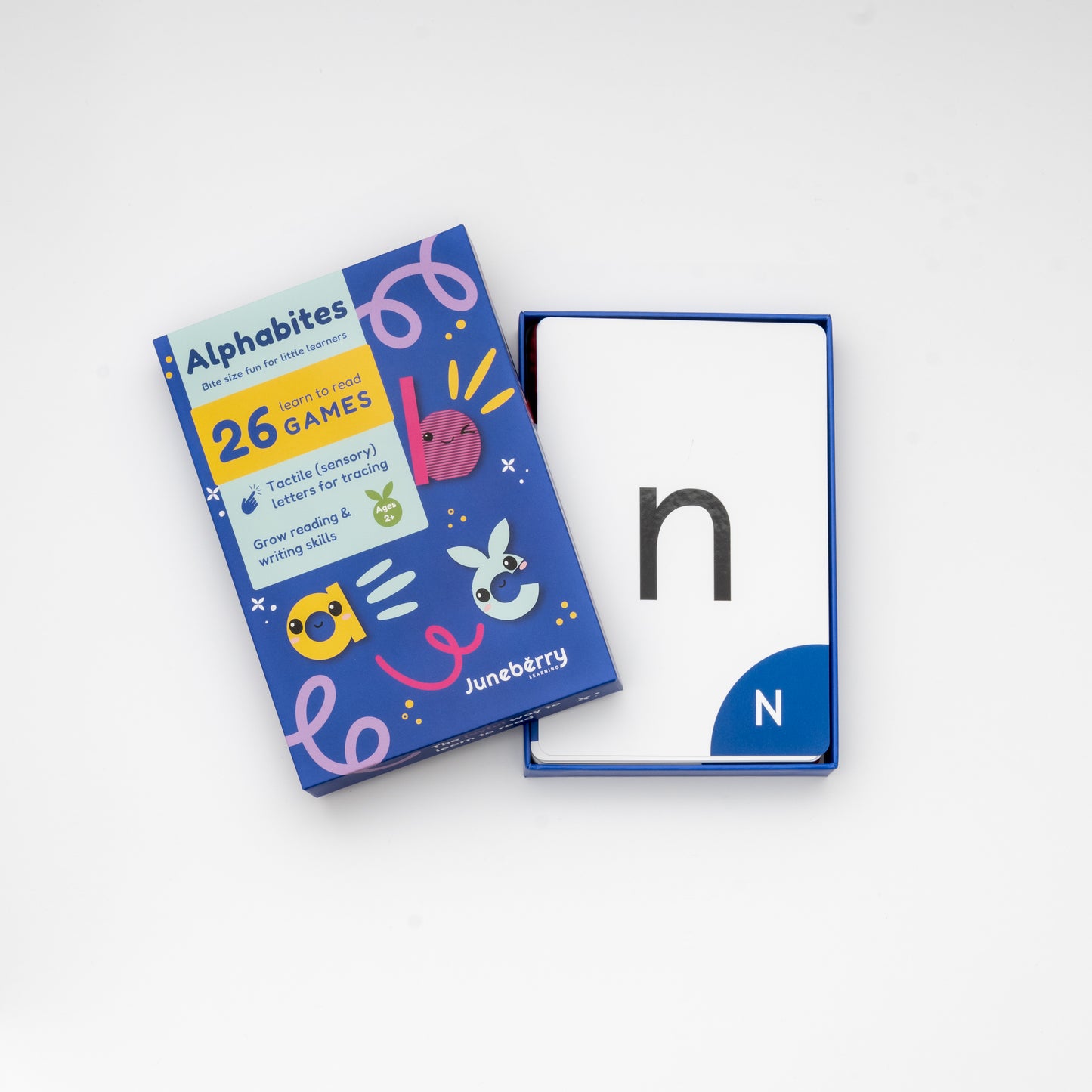
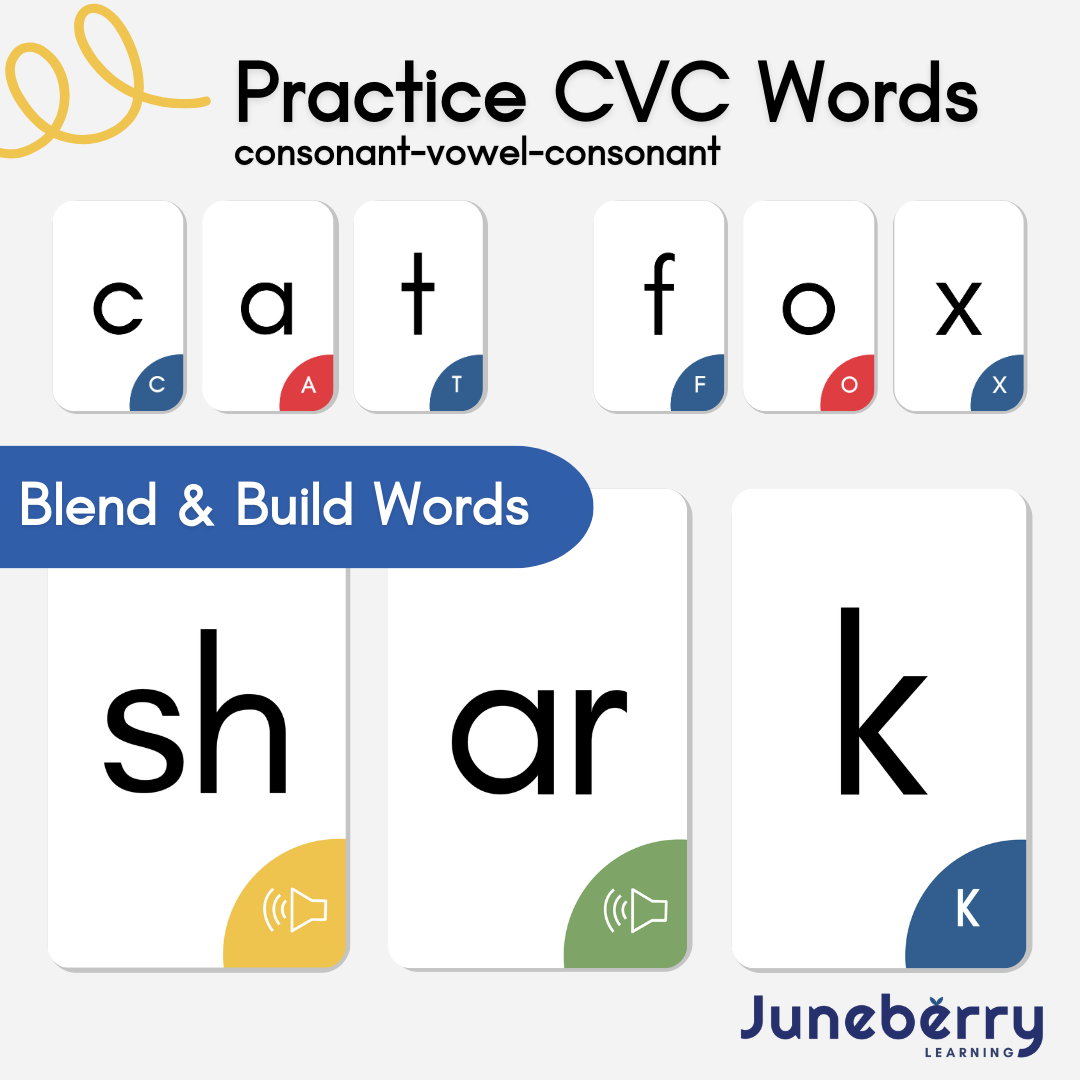
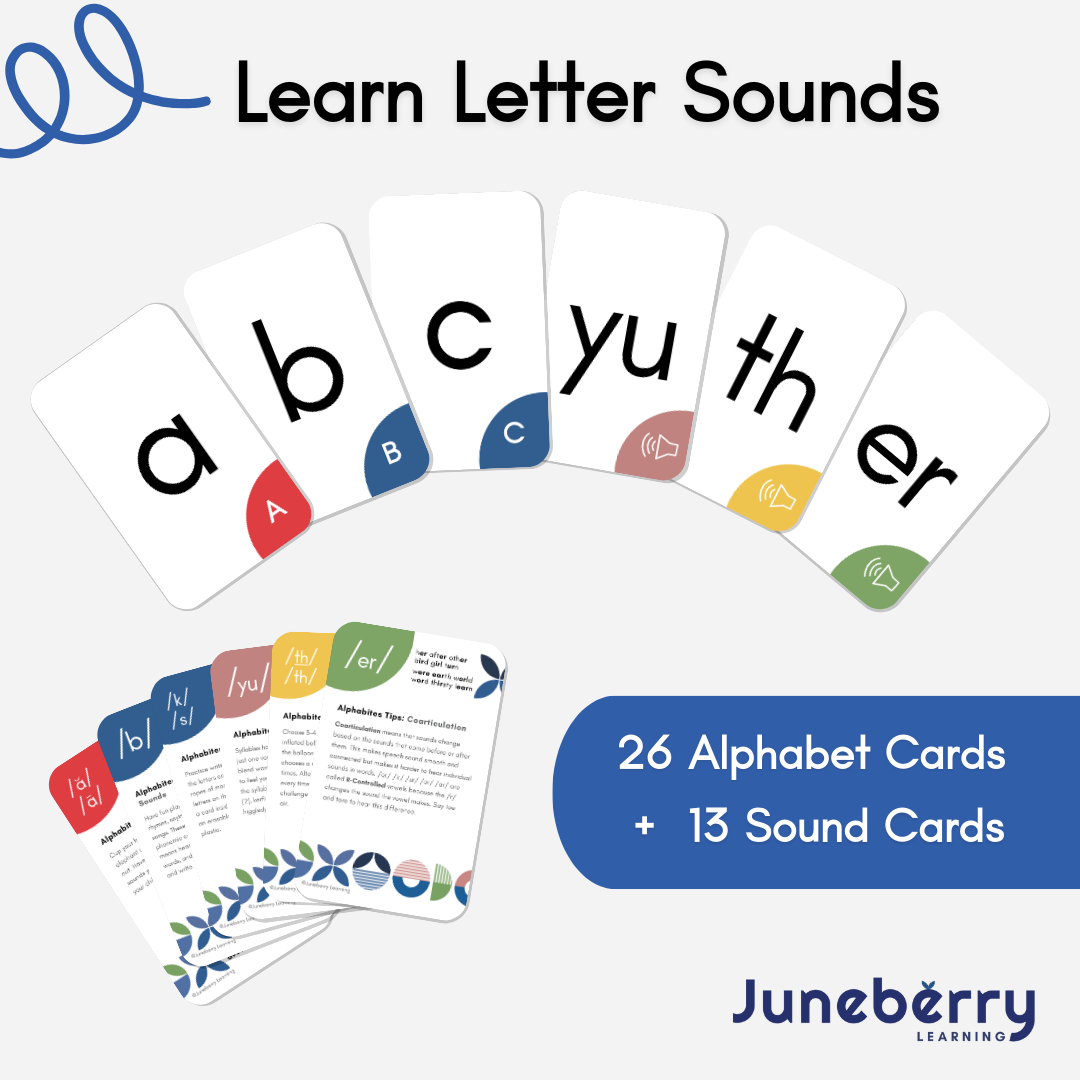
I purchased Alphabites for my nephews for their birthdays. I usually try to find something that is educational or useful instead of just buying toys or board games (they have so many already). This is perfect as they have a lot of fun playing and it helps them develop their reading skills. They are both very rambunctious so it was nice to see how durable the cards are. Alphabites will now be a go to present for any of my friend’s kids for birthday or Christmas gifts.
Alphabites is a wonderful way to help your child develop their reading skills through play-based learning. There is a wide range of activities that can be done in short bursts of time which is especially good for toddlers. The games are easy to learn/play.
My granddaughter really enjoys the games. She is very engaged while doing so. The cards are easy for children to handle and are very durable. As a retired elementary teacher, I know these activities are research based and very effective. I would highly recommend Alphabites for parents, grandparents, aunts/uncles and educators to have fun learning to read.
These alphabet cards are perfect for toddlers! Bright, colorful, and easy to use, helping my 3 yr old recognize letters and developing words. The sturdy cards ensures they’ll last through lots of practice! A great educational tool for any child!
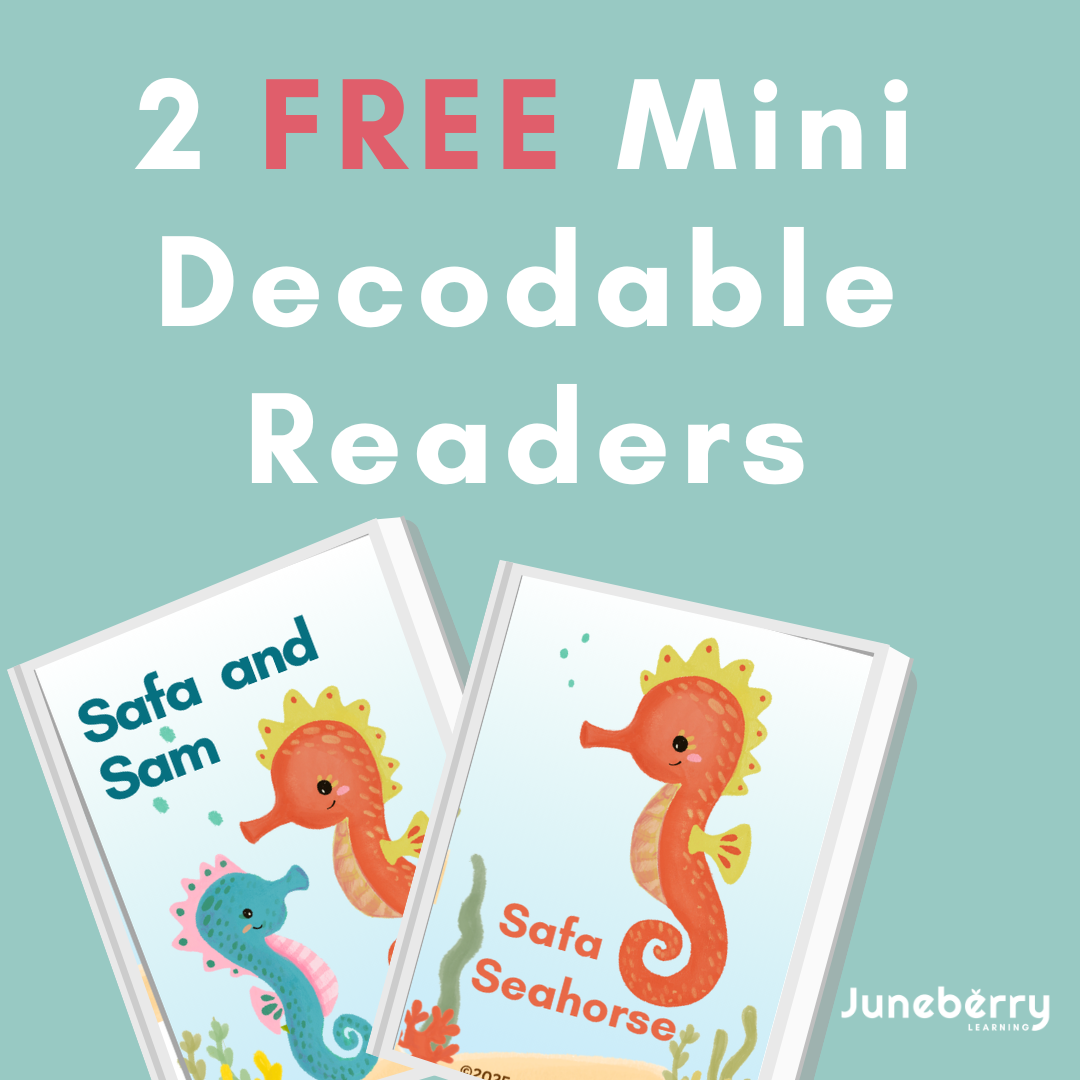
Get your free decodable books!
Meet Safa and Sam, two adorable sea creatures who help young readers take their first steps into reading books. Get your free books today!

Families on-the-go love Alphabites!
We LOVE the game pack! I found it super helpful because it had ideas on the back on how to turn it into a game. My 3-year-old loved hopping to the cards on the ground (while we were at gymnastics with their sibling). I was really surprised on how fast she picked up on the letters too! - Dr. Clare Crosh

Teachers love Alphabites!
"As a teacher of 30+ years of experience with young learners, I know how critical phonemic awareness is for reading success. The multi-sensory and interactive activities on the Alphabites Game Cards are both fun and engaging, a great way for children to learn letter sounds and build confidence. The hilarious tongue twisters are a fun way to practice specific phonemes." - I.N., Primary Teacher

Kids love Alphabites!
"What a fun way to learn letter-sound relationships! The young learners in my family are always keen to play the active games on the Alphabites cards. Their self-confidence in transferring their knowledge of letter sounds to blending sounds together is exciting. Thank you Juneberry Learning!" - Orysha


Created by an experienced educator
Maxine Sprague, founder
- Over 20 years of classroom teaching experience
- Has taught hundreds of students to become strong readers and writers
- Masters of Education
- Accomplished author of several parenting books and articles for major publications

FAQ
FAQ
How old should my child be to play Alphabites?
This varies as your child is unique and will reach milestones based on their own abilities and interests.
As a flexible guideline, we recommend using Alphabites to introduce letter sounds at around 2 years old. As your child advances in their reading skills, we provide tips for making the games more challenging.
Alphabites is also great for early readers and older children who need to grow their phonics skills, build confidence, and reinforce literacy skills learned at school.
Do I still need Alphabites if my child is learning to read at school?
Alphabites supports the learning that happens at school. Reading and playing with your child at home reinforces the knowledge and skills they learn at school.
It takes 3-4 years for a child to become a strong independent reader, so practicing at home will provide valuable support for their literacy learning. Alphabites is great for pre and early readers.
Studies show that children who grow up in homes where oral language, reading, and enriching experiences are valued, develop strong and enduring literacy, language, and cognitive skills.
Do I need anything else to play the Alphabites games?
Not at all! We have designed the games to use items you already have around your house. You don’t need to purchase any additional materials to play.
What if my child’s school isn’t teaching phonics?
If your child’s school is using a Whole Language, Balanced Literacy, Sight Word, or similar approach, it is even more important for you to help your child learn the alphabetic code.
Thousands of studies across a broad range of fields clearly show that knowledge of phoneme/grapheme correspondence, segmenting, and blending set children up for success with reading development and comprehension in later years.
Phonics instruction is essential for becoming literate. Alphabites games make it easy and fun for your child to learn the alphabetic code.
I’m a teacher - would Alphabites be useful in my classroom?
Yes, Alphabites games are great for introducing and learning graphemes and phonemes. They can be used for literacy centers, small group learning, one on one support and intervention, and assessing students' knowledge of graphemes and phonemes.


